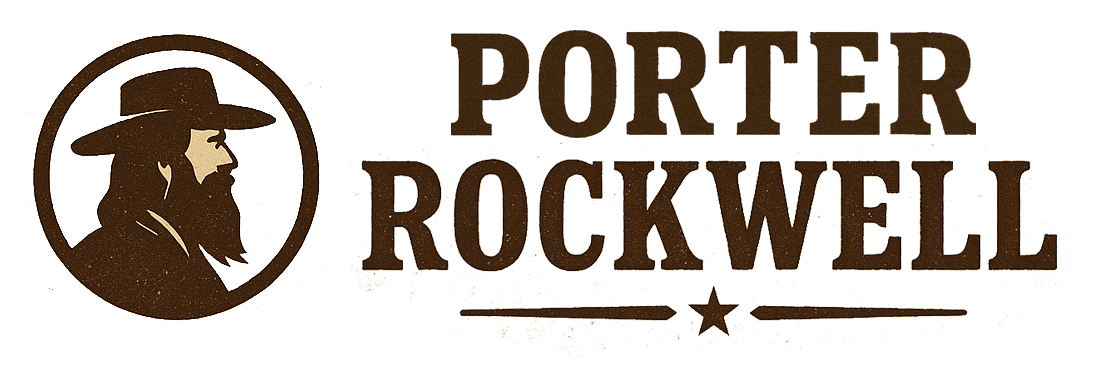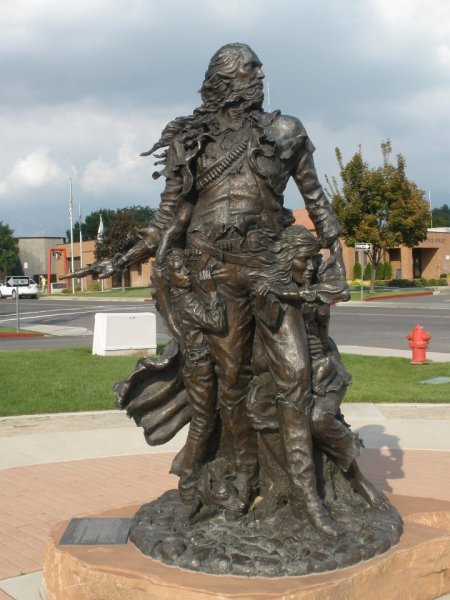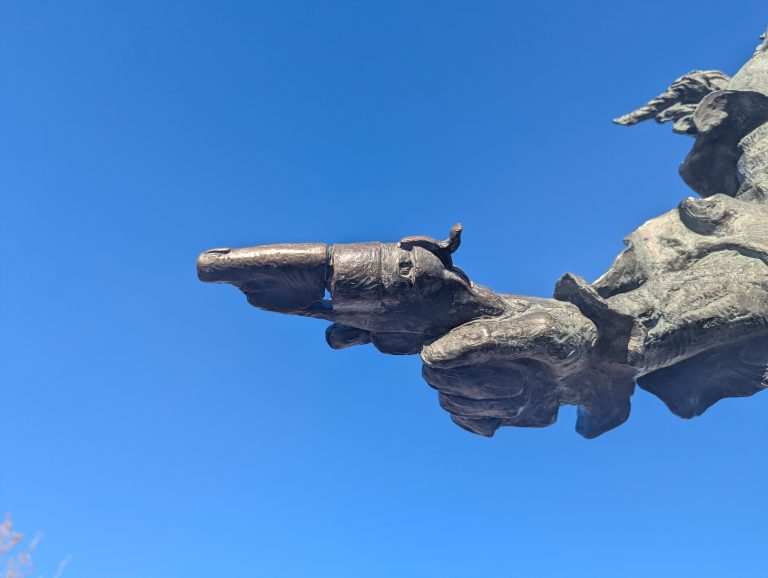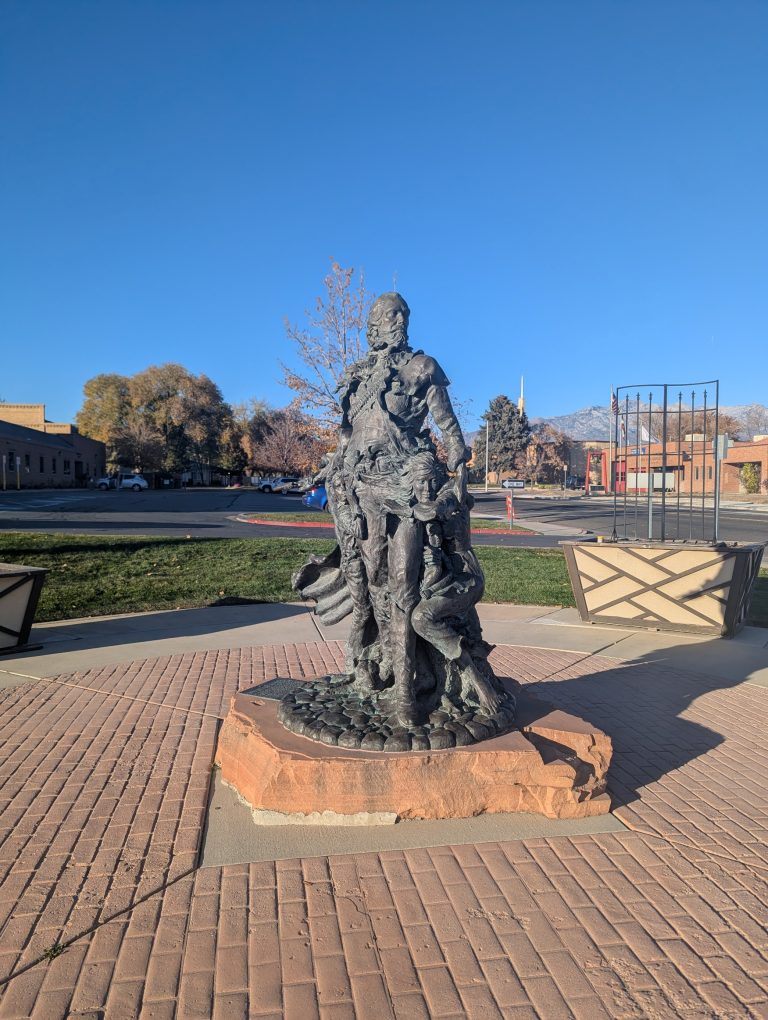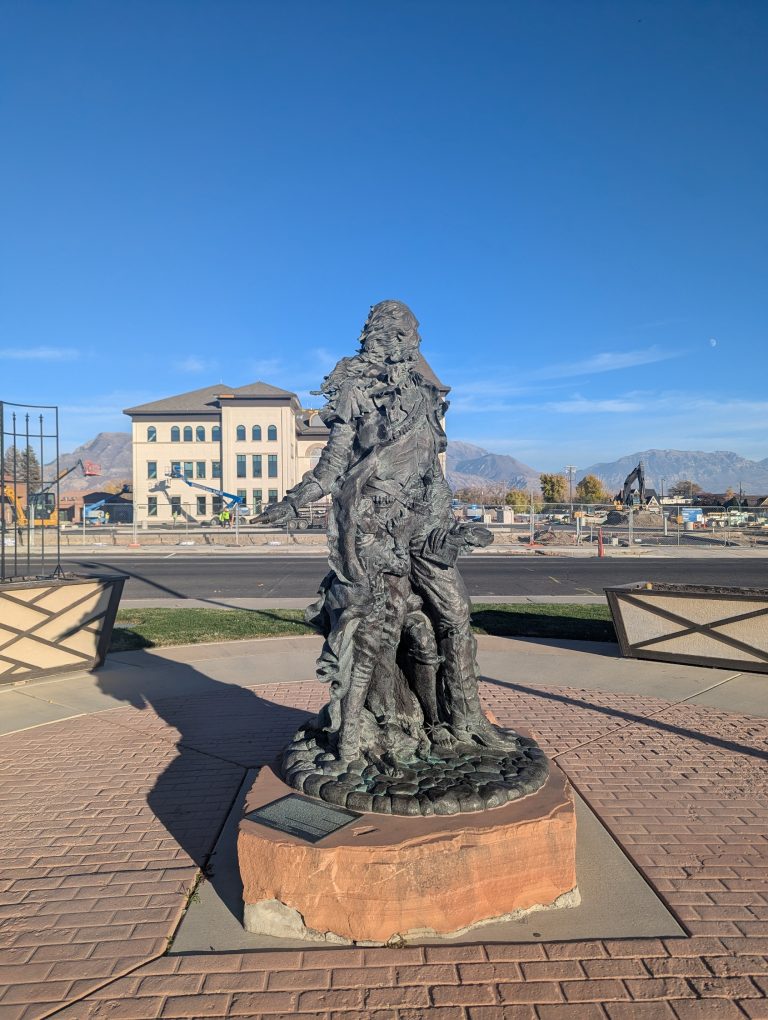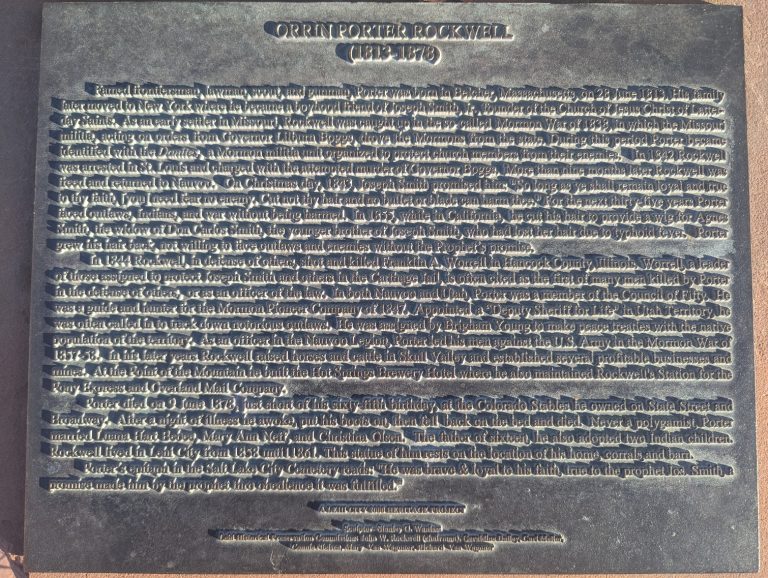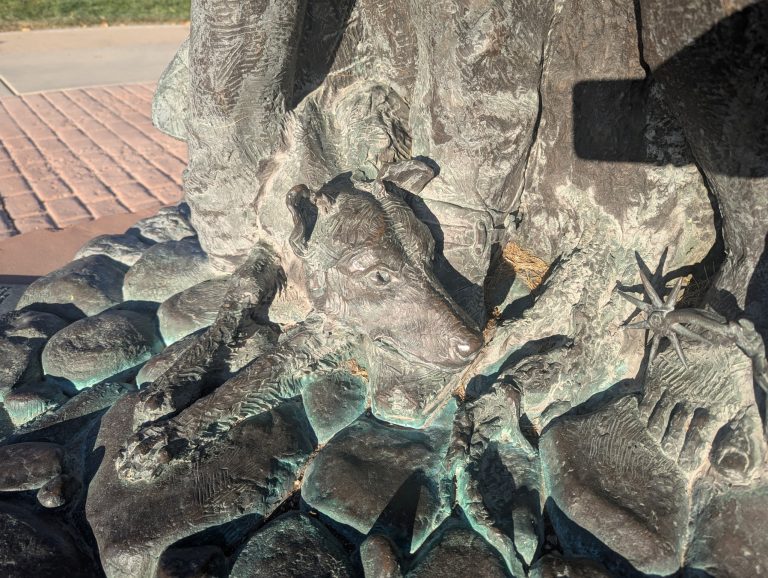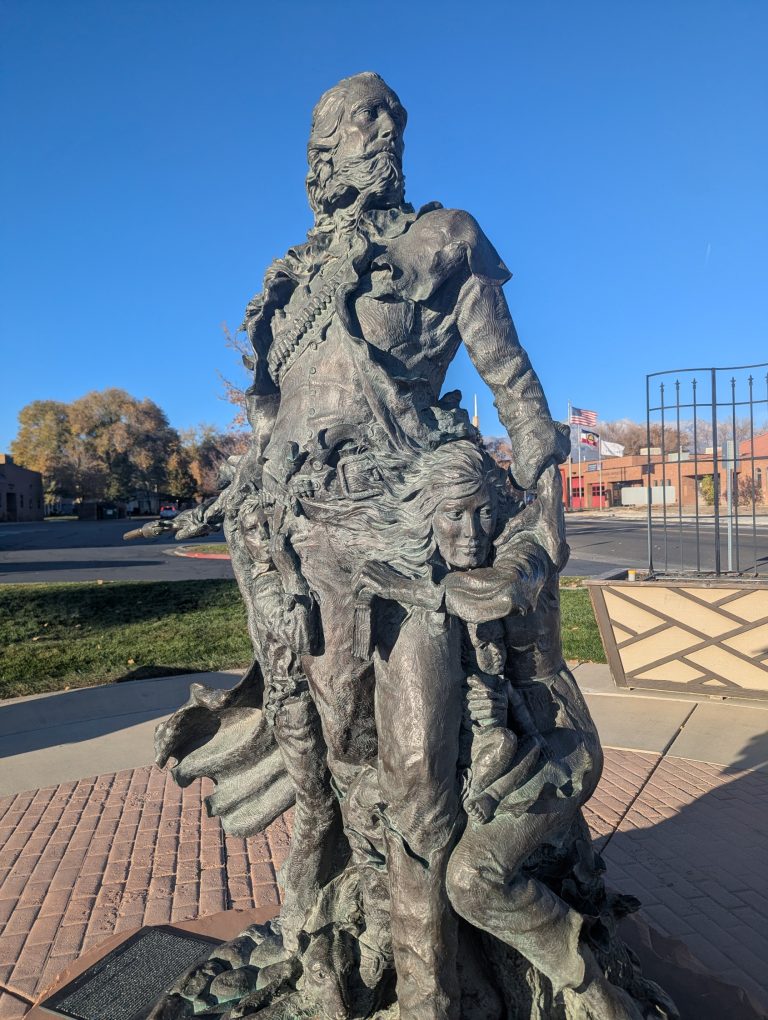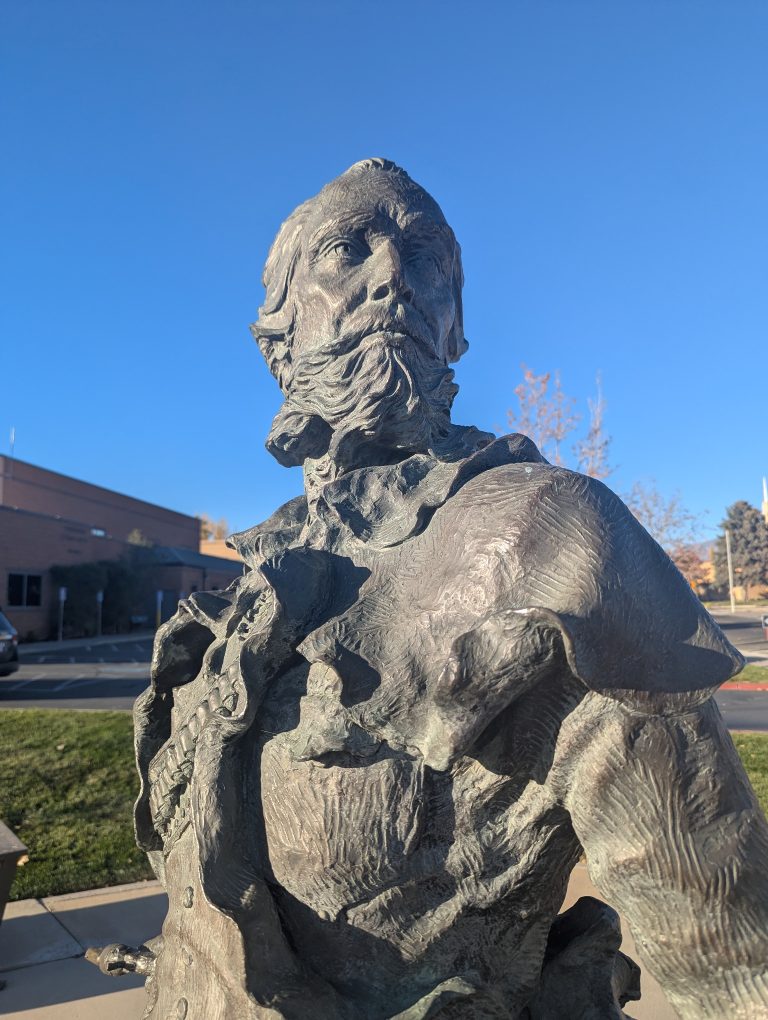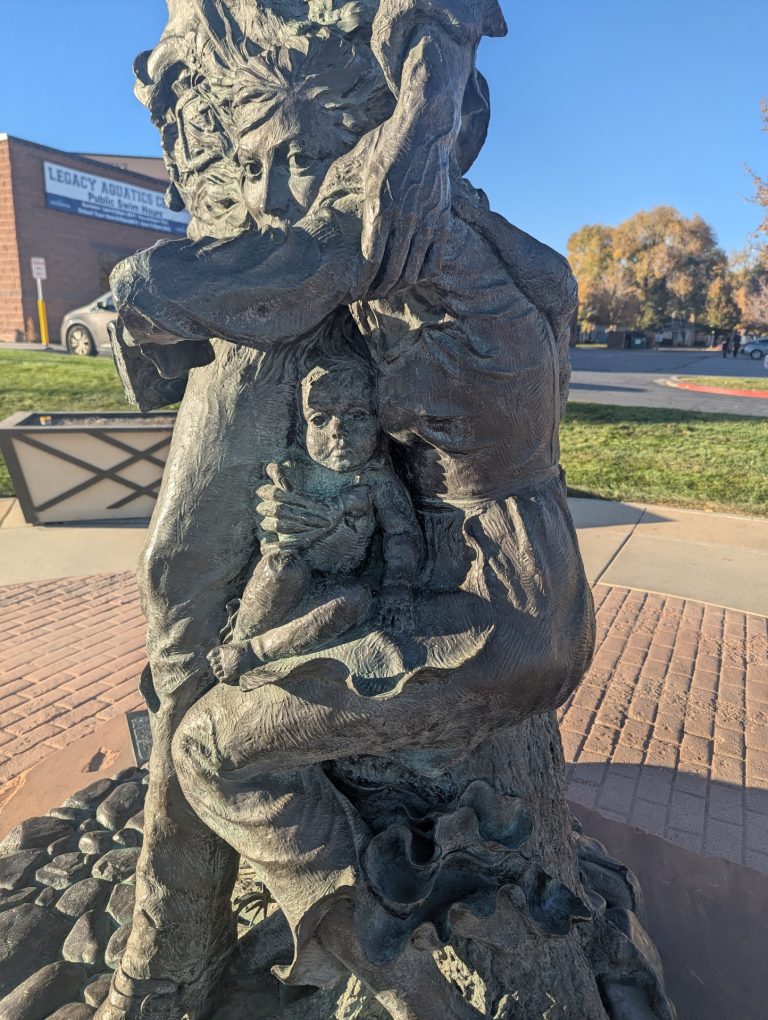Description:
This statute created by artist Stanley Wanlass sits in the parking lot of the Lehi Legacy center in the approximate location where Rockwell’s cabin once stood outside the Lehi fort wall.
It is also behind the building that for many years housed the restaurant “Porter’s Place.”
When you visit, you might also consider checking out the Porter Rockwell exhibit in the Wild West room of the Hutchings Museum which is found just south of the statute in the same parking lot.
This is the text on the plaque:
ORRIN PORTER ROCKWELL (1813–1878)
Famed frontiersman, lawman, scout, and gunman, Porter was born in Belchertown, Massachusetts, on 28 June 1813. He and his family later moved to New York, where he became a boyhood friend of Joseph Smith, Jr., founder of The Church of Jesus Christ of Latter-day Saints. As an early settler in Missouri, Rockwell was among those called “Mormon War” of 1838 in which the Missouri militia, acting on orders from Governor Lilburn Boggs, expelled the Mormons from the state. During this period Porter became identified with the Danites, a Mormon militia unit organized to protect church members from their enemies.
In 1842, Rockwell was arrested in St. Louis for an attempt on the life of Boggs, but after months in jail was released for lack of evidence. He returned to Nauvoo. On Christmas day 1843, Joseph Smith prophesied that “as long as you shall remain loyal and true to thy faith, you (Porter) shall not be overcome by your enemies. Cut not thy hair and no bullet or blade can harm thee.” For the next thirty-five years Porter faced outlaws, indians, and war without being harmed. In 1855, while in California, he cut his hair to provide a wig for Agnes Smith, the widow of Don Carlos Smith, the younger brother of Joseph Smith, who had lost his hair due to typhoid fever. Porter grew his hair back, not willing to face outlaws and enemies without the Prophet’s promise.
In 1844, Rockwell, in defense of others, shot and killed Frank A. Worrell in Hancock County, Illinois. Worrell, a leader of those assigned to protect Joseph Smith and others in the Carthage jail, is often cited as the first of many men killed by Porter in the discharge of his duties as an officer of the law. In both Nauvoo and Utah, Porter was a member of the Council of Fifty. He was a guide and hunter for the Mormon Pioneer Company of 1847. Appointed as a Deputy Sheriff for life in Utah Territory, he was often called in to track down notorious outlaws. He was assigned by Brigham Young to make peace treaties with the native population of the territory and as an officer in the Nauvoo Legion, Porter led his men against the U.S. Army in the Mormon War of 1857–58.
In his later years, Rockwell raised horses and cattle in Utah Valley and established several profitable businesses and mines. At the Point of the Mountain, he built the Hot Springs Brewery Hotel, where he also maintained Rockwell’s Station for the Pony Express and Overland Mail Company.
Porter died on 9 June 1878, just short of his sixty-fifth birthday, at the Colorado Stables he owned on State Street and Broadway. After a night of illness he awoke, put his boots on, then fell back on the bed and died. Never a polygamist, Porter married Luana Hart Beebe, Mary Ann Neff, and Christina Olsen. The father of sixteen, he also adopted two Indian children. Rockwell lived in Lehi City from 1858 until 1861. This statute of him rests on the location of his home, corrals, and barn.
Porter’s epitaph in the Salt Lake City Cemetery reads: “He was brave & loyal to his faith, true to the prophet Joseph Smith, a promise made him by the prophet, whose obedience it was fulfilled.”
Artist: Steven L. Shaheen
Jeff Hill Foundation Preservation Commission, Daughters of Utah Pioneers, Rockwell family, Geraldine Dollinger, Geri Callister, and others.
